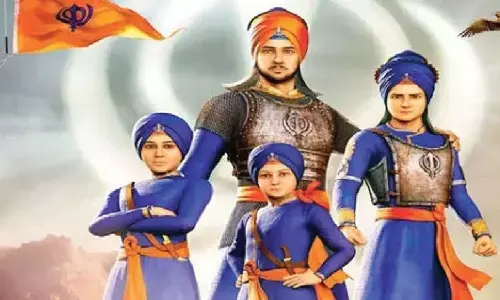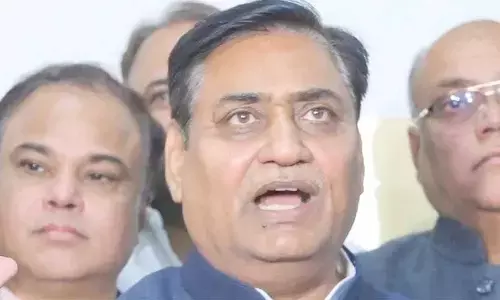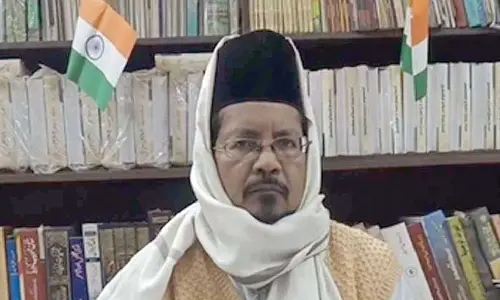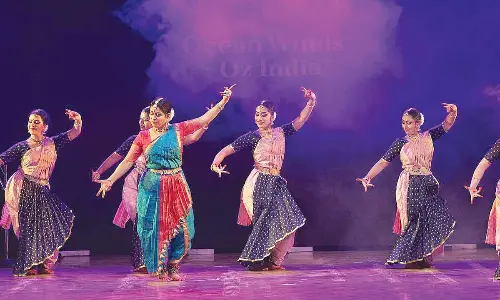BCCI under RTI: Conflicts within govt depts

The departments in Ministry of Youth Affairs and Sports and Ministry of Law Justice could not conclude whether they have authority to declare BCCI as public authority under RTI Act MOYAS sought legal opinion and S K Mehindiretta, legal consultant, opined
The departments in Ministry of Youth Affairs and Sports and Ministry of Law Justice could not conclude whether they have authority to declare BCCI as public authority under RTI Act. MOYAS sought legal opinion and S K Mehindiretta, legal consultant, opined:
The obligation of disclosure of information under RTI Act is not confined only to the governments and their Ministries/Departments but also extends to their instrumentalities may be defined under the Act as ‘public authorities’.
The Supreme Court on January 22, 2015, in CA Nos 4235 and 4236 of 2014 (BCCI Vs. Cricket Association of Bihar) concluded – ‘BCCI does discharge several important public functions which make it amenable to writ jurisdiction of the High Court under Article 226 of the Constitution of India’.
In BCCI and Another Vs. Netaji Cricket Club and Others [2005(4) SCC 741] verdict, the Supreme Court observed, “The board’s control over the sport of cricket was deep and pervasive and that it exercised enormous public functions which made it obligatory for the board to follow the doctrine of ‘fairness and good faith’.” Having regard to the fact that it has to fulfil the hopes and aspirations of millions, it has a duty to act reasonably. It cannot act arbitrarily, whimsically or capriciously. As the board controls the profession of cricketers, its actions are required to be judged and viewed by higher standards.”
In Zee Tele Films Limited and Another Vs. Union of India and Others [2005 (4) SCC 649] case, Supreme Court has held that the BCCI ‘has a complete sway over the game of cricket in this country’; ‘it regulates and controls the game to the exclusion of all others’; ‘it formulates rules, regulations, norms and standards covering all aspects of the game’; ‘it enjoys the power of choosing the members of the national team, disqualifying players which may at times put an end to a sporting career of the persons’; ‘it spends crores of rupees on building and maintaining infrastructure like, stadia, running of cricket academies and sporting state associations’; ‘it frame pension schemes and incurs expenditure on coaches, trainers, etc.’; ‘it sells broadcast and telecast rights and collects admission fee to venues where the matches are played’. ‘
Any organization or entity that has such pervasive control over the game and its affair and such powers as can make dreams end up in smoke or come true cannot be said to be undertaking any private activity’. The functions of the board are clearly public functions. Suffice to say that if the government not only allows an autonomous/private body to discharge functions which it could in law take over or regulate but even lends its assistance to such a non-government body to undertake such functions which by their very nature for public functions, it cannot be said that the functions are not public functions or that the entity discharging the same is not answerable to the standards generally applicable to judicial review of state action’.
“...there is no reason, in my view, not to treat the BCCI as an instrumentality of the government and declare it as a public authority within the meaning of section 2(h) of the RTI Act, 2005,” wrote the legal consultant. “The observation of the Supreme Court in Sukhdev and Others, etc. Vs. Bhagatram Sardar Singh Raghuvanshi and Another, etc. [1975(1) SCC 421], in para 97, also supports my above view: ‘If a given function is of such public importance and so closely related to governmental functions to be classified as a governmental agency, then even the presence or absence of State financial aid might be irrelevant in making a finding of State action’.
It defies logic that the acts of the BCCI can be questioned by the general public before the High Courts under Article 226, but the general public is not to be allowed access to the nature or details of its actions as that would undoubtedly deprive the general public to know the state of affairs of the BCCI and their right to question them before the High Court if they are violative of any law or the rights of the general public.
The right of the general public to know the state of affairs of the BCCI can be ensured only if the BCCI is treated as a public authority within the meaning of the RTI Act and whereby the BCCI becomes obliged to disclose matters relating to its functioning to the general public. He reiterated that BCCI and other NSFs should be public authorities.
The MoYAS suggested reference of the matter to the Legal Department. The Deputy Legal Adviser said: “Section 2(h) of the RTI Act only defines the term ‘public authority’. It does not empower the government to declare any authority, body or institution as a ‘public authority’. In the absence of any such enabling provision, the proposed order cannot be issued under the provisions of section 2(h) of the RTI Act.”
When referred again, the legal consultant reiterated: “In my above view, I am fortified by the provisions of section 25(2) of the RTI Act which provides that ‘each Ministry or department shall, in relation to the public authorities within their jurisdiction, collect and provide such information to the Central Information Commission or State Information Commission, as the case may be, as it required to prepare the report under this section…” Undoubtedly, the NSFs fall within the jurisdiction of the Sports Ministry and the Ministry is obliged to furnish information if asked for by the CIC in respect of any of the NSFs.
Meanwhile, the Law Commission recommended the BCCI to be brought under RTI Act, then the Law Secretary has only forwarded the report to this Ministry for communicating the decision regarding implementation the report of Law Commission without giving any specific views. AK Singh, Under Secretary, wrote to Secretary, Department of Legal Affairs as follows:
“The Ministry of Youth Affairs and Sports agrees with the recommendations that the Board of Control for Cricket in India (BCCI) shall be declared as public authority under the Right to Information Act, 2005.”
However, as regards the recommendations regarding inclusion of the BCCI in the list of National Sports Federations available on the website of the Ministry, the same has not been found feasible because the BCCI has not been given specific recognition by the Ministry. Inclusion of the BCCI in the list would entail the inclusion of many such sports bodies in the list of the Ministry. This may lead to legal and administrative complications.The contentions and file notings submitted to CIC disclosed that there was no decision because of above conflicting opinions. (Based on order of CIC dated 1.10.2018)
















